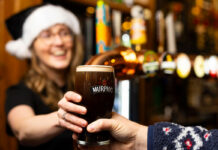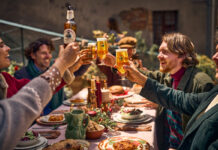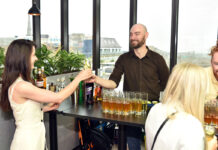Pre-pandemic trend towards ‘low and no’ products expected to continue

IF there’s one thing that can be said for 2020, it’s that people are probably more aware of ‘health’ than they’ve ever been.
And drinks companies reckon that this growing awareness – coupled with a desire by many to eat and drink healthier after an extended lockdown – could increase demand for low and no-alcohol products in the newly reopened licensed trade.
According to figures from brewer Heineken UK, the ‘low and no’ category was worth £8 million in Scotland prior to the COVID-19 lockdown and the company expects demand to be high as customers return to the on-trade.
“Pre-lockdown, 50% of consumers claimed to be moderating their alcohol intake and 73% were proactively trying to lead a healthy lifestyle,” said Jerry Shedden, Heineken UK’s category and trade marketing director.
“With increased time being spent on health and wellness during lockdown, moderation and the demand for no and low alternatives will likely continue to rise across all demographics.”
Christian Sarginson, brand development controller at Global Brands, the parent company of Franklin & Sons, agreed.
With an increased focus on health and wellness, demand for ‘low and no’ will likely rise.
He said both soft and low and no-alcohol drinks had been in growth prior to the pandemic.
“Therefore, once consumers start returning to pubs and bars, this trend could see a rise in popularity again, especially with more consumers becoming focused on their health and wellness due to the COVID-19 pandemic,” said Sarginson.
COVID could potentially drive customers to low and no options in other ways too, said companies.
Rosie Fryer of Kopparberg speculated that a continued aversion to public transport could ensure there is a steady stream of designated drivers in licensed premises.
“People are less inclined to use public transport so travelling by car to your local will become the norm and there will always be a designated driver, so it makes sense for operators to ensure they are providing a responsible (and desirable) alternative,” said Fryer.
With off-trade sales booming during the lockdown, consumers may also have experimented with a wider range of low and no-alcohol products over the past few months.
“The off-trade naturally has more space dedicated to no and low drinks and therefore consumers are likely to have browsed or experimented with new options at home during lockdown,” said Shedden at Heineken.
“Operators should consider reviewing their no and low range to cater to the broadened taste profiles of consumers who have taken this opportunity to try new options.”
Operators should consider reviewing their range to cater to broadened tastes.
More experience of the category could also mean consumers have higher expectations when it comes to quality, according to Krombacher sales and marketing director Stephan Kofler.
“Many consumers have just spent the last three months online buying and researching food and drink, and then testing it at home so I think many people who weren’t interested in the intricacies of dishes, recipes, drinks, styles and serves, now are,” said Kofler.
“This means venues looking to take advantage have to ensure they offer quality and an experience.
“If people are paying a premium to drink in the on-trade and furthermore, have to book in advance and deal with social distancing, the drinks and the service better be good.”
Beer is said to continue to be the most popular alcohol-free option in pubs and bars, but there are a growing number of alcohol-free wines and spirits on the market.
“In terms of what to stock and how many products from each category to choose, I would recommend several styles of non-alcoholic beer, (there are dozens of good ones to choose from); maybe a good quality kombucha; a non-alcoholic sparkling wine; a good wine alternative; and a range of non-alcoholic spirits and aperitifs, so that you can make mixed drinks and cocktails,” said James Morgan of non-alcoholic spirits brand Nine Elms.
“Don’t stick to one brand of spirits – there are some really interesting drinks coming onto the market.”
Non-alcoholic cocktails can also provide a healthy margin for operators, according to Alex Carlton of Elegantly Spirited, the company behind the Stryyk brand.
“Consumer research shows that operators can price non-alcoholic cocktails similarly or perhaps £1 less compared to their alcoholic counterparts,” said Carlton.
“Not only do bars need the revenue at this time, but it is justifiable as the product is similarly made with distillates and the bar is working hard to offer fabulous serves that mirror their alcoholic cocktail menus.
“Also, and most importantly, consumers are enjoying the same cocktail as their friends, which ensures their visit to the on-trade is special and tailored to the guest, whether they are drinking alcohol or not.”























